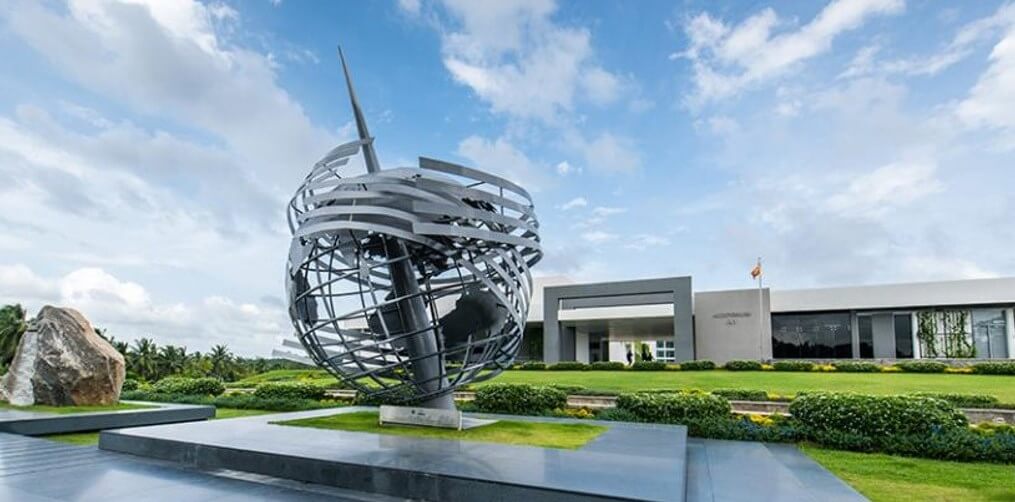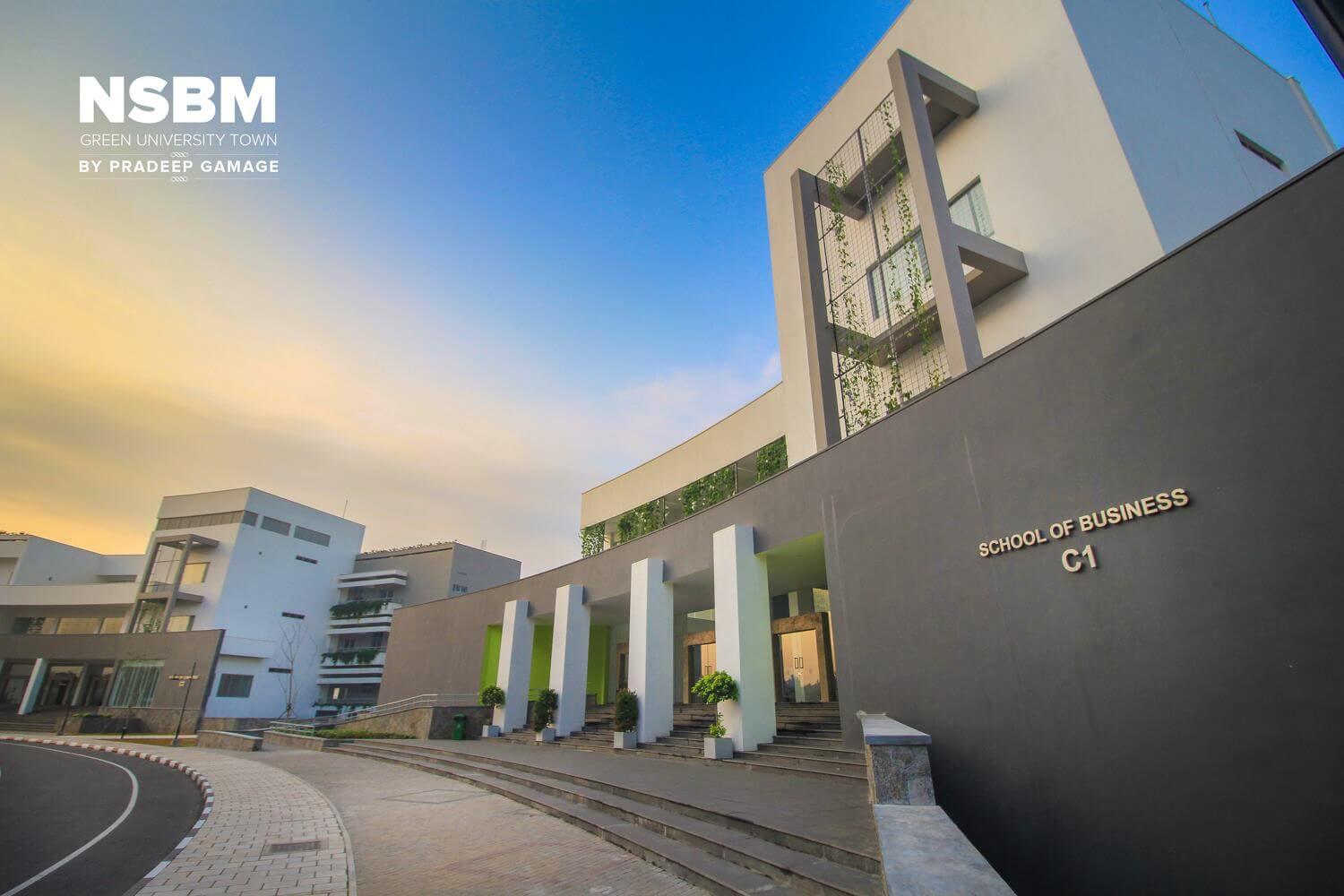Goal of the Research Centers

Our research centres reflect key themes within the faculties of NSBM and provide a platform for developing multidisciplinary research links, as well as for connecting research with practice. Within each centre, our staff undertake innovative theoretical scholarship, significant empirical research and knowledge exchange activities. This includes national and international interdisciplinary collaborations, not only with academic researchers, but also policymakers, managers and practitioners involving respective industries.
A distinctive feature of the research across the groups is the crossover between conceptual and practical dimensions of research. Centres are evolving, emergent, dynamic and self-organising groups of researchers whose work has synergies across Research centres/groups. This reflects a concern with the relevance and impact of research on business and policy communities.
NSBM Research Centers Overview
Under the three main schools of NSBM Green University (Faculty of Business, Faculty of Computing and Faculty of Engineering) 23 research centres are identified.
Faculty of Business research centres are focusing on Global Value Chains, leadership, consumer behaviour in emerging markets and sustainable business practices.
Faculty of Computing research centres are focusing on artificial intelligence, digital forensics and technology advancements.
Faculty of Engineering centres are focusing on power systems analysis, spatial relationships & user behaviour, creative cognition and design studio work, nutrition innovation
Faculty of Business Research Centres

> Centre for Leadership Studies and Practice (CLSP)
The centre develops critical understandings of the theory and practice of organisational leading. In the centre, some of the broad questions of ‘leadership for whom, for what and in what ways?’ are addressed. Accordingly, the themes which underpin our research are emotions and authenticity, entrepreneurial leaders and leadership, governance and performance, international leadership and leadership in non-Western cultures, learning and development, and responsibilities, purposes and ethics.
Key person- Prof. Baratha Dodankotuwa
> Centre for Women in Business (CWB)
The centre is dedicated to fostering the transforming role of women in society. By working closely with the industry and society, the centre aims to develop women leaders for tomorrow’s dynamic workplace. Further, it intends to take into consideration some of the most pressing issues and understand the key barriers for female leadership and focus on building the skills essential for corporate success.
Key person- Ms. Thilini De Silva
> Centre for Business Transformation (CBT)
A key centre within the Department of Management is dedicated to foster research-related to globalization, organizations, employment, culture, and sustainable development, as well as the promotion of interdisciplinary research in business. We bring together researchers and practitioners from different disciplines to bridge the gap between knowledge and practice, and research and impact in fields of business management.
Key person- Dr. Isuru Koswatte
> Global Marketing and Consumer Interaction Centre (GMCIC)
The GMCIC produces high-quality research in the areas of marketing examining the marketing phenomena in multi-disciplinary environments drawing knowledge from different fields, such as psychology, communications, sociology, anthropology, philosophy, and economics. GMCIC academics benefit from research collaborations within private and public institutions, external companies, charities, and the public.
Key person-
> Centre for Tourism Management (CTM)
The key centre within the Department of Marketing and Tourism concerns rapid changes, latest trends, and developments in the tourism industry, as well as how these bring influences, drive innovations, and accelerate improvements towards respective sectors in the tourism industry.
Key person-
Research Centre for Accounting and Finance (ReCAF)
ReCAF is one of the main centres operating under the Department of Accounting and Finance which guides the undergraduates for quality research outputs while enhancing the research capacities of academics. ReCAF considers a wide array of fields for research under the umbrella of Accounting and Finance.
Key person-
> Research Centre of Operations, Logistics and Project Management (COLPM)
Research Centre of Operations, Logistics and project management (COLPM) under the department of Operations & Logistics is formulated to conduct research in business process re-engineering, sustainability, agile and lean supply chains, modelling and simulation of supply chains. Further through the project management side, research on strategy and impact of hybrid project management approaches will be carried out.
Key person-
> Research Center for Economic Applications and Policy (RCEAP)
The main research centre of the Department of Economics and Decision Sciences will operate to provide an environment to the faculty and students that nurtures faculty-led and collaborative research on applied economics, business economics and policy research projects.
Key person- Ms. Shashini Gayanika
> Center for Corporate Legal Research (C2LR)
The Centre for Corporate Legal Research is a platform for research aspects relating to Commercial and Corporate Law. The centre aims to use critical, speculative, and empirical methods, and inter-disciplinary and trans-disciplinary approaches. This research centre expects to explore and analyze shifts, trends, and tensions in existing and emerging commercial-legal domains.
Key person-
> Research Centre for postgraduate studies (RCPS)
This Centre is to promote vibrant research culture at the postgraduate level. As the Postgraduate Division was established for the entire University, it will adopt a multi-disciplinary approach in addressing research projects and developing the essential training required to become a successful researcher.
Key person-
Faculty of Computing Research Centres

Centre for Societal Advancement in ICT (CSA-ICT)
ICT can influence both positive and negative implications to the society. Appropriate policy enforcement should be in place to segregate which is best for the mankind. In case of policy deficiencies, proper amendments of the introduction of new standards may be required
Key person- Prof. Chaminda Rathnayake
Centre for Data Science & Smart Societies (CDSS)
This research centre nurtures research mainly pertaining to the areas of Artificial Intelligence, Machine Learning, Computer Vision and how those niches could contribute for the betterment of mankind and societies.
Key person-
Centre for Networking & Digital Forensics (CNDF)
Sharing of resources and monitoring of network traffic becomes vital for numerous purposes. Sometimes, it could be a hindrance as well. Finding the right balance is quite important. This research centre is to investigate more on potentials, precautions and restrictions aligned with this discipline
Key person- Mr. Chamindra Attanayake
ICT Research & Development Centre (ICTRDC)
It`s rather impossible to locate a field where ICT is not applied. The emphasis of the ICT interventions should always be for the betterment of the mankind and upliftment of the quality of life. ICT should not be a stressor and information-overloaded, which increases the complexity of simplistic operations.
Key person- Ms. Dulanjali Wijesekara
Mathematics and Statistical Inferencing Centre (MSIC)
The Blend of mathematics and statics is an essential core associated with modern data science. Through novel mathematical and statistical methods, the efficacy of the existing algorithms can be further enhanced, and novel resolutions also can be proposed.
Key person- Ms. Avanthi Moragammana
Centre for Sustainable Solutions in Computing (CSSC)
The modernised world is looking for potential and liable solutions to reduce the disastrous impacts on the environment. As a computing researcher, you have a vital role to play.
Key person- Mr. Mohamed Shafraz
Faculty of Engineering Research Centres

Research Centre for Power & Renewable Energy (RCPRE)
Research Centre for Power and Renewables Energy will work with the local industries in power generation, distribution and Power System / Machine Design. It will work with different research areas related above industries and application in both academic and industrial perspectives under Electrical Machine & Drives Power Generation, Distribution, Solar, Wind and Wave Power (Renewable).
Key person- Ms. Kaumadee Samarakoon
Research Centre for Lightning and Power System Protection (RCLPSP)
Research Centre for Lightning and Power System Protection will work with the electrical and telecommunication companies for their product design process and testing. The centre will conduct collaborative research with local and foreign universities. In addition to that will be an active member of ICLP (International Conference for Lightning Conferences). Lightning Protection, Surge Protection, Electro Magnetic Compatibility, High Voltage Testing will be its research areas.
Key person- Ms. Kaumadee Samarakoon
Research Centre for Industry Automation and Robotics (RCIAR)
This centre will directly interact with the production and automation technology research which can uplift the existing industry to Industry 4.0 level and improve further. Industrial Automation and Production process Designing Robotics UAV and Autonomous Vehicle and Vessel Development Manufacturing Technology Development will be its research areas.
Key person- Ms. Narmada Ranaweera
Research Centre for Sensor Networks and IOT (RCSNIOT)
This centre will interact with the telecommunication industry and will focus on advanced, industry-supported wireless communications and networking research
Key person- Ms. Madhavi Madushani
Research Centre for Design and Innovation (RCDI)
The core areas of the centre include spatial relationships and user behaviour in interior environments, Creative cognition and Design studio work relationships, modern-day visual communication strategies on branding, Sinhala letterform Development for Graphic Design
Key person- Chaturika Nugawela
- Nutrition Innovation Centre for Food and Health (NICFH)
The core areas of the centre include spatial relationships and user behaviour in interior environments, Creative cognition and Design studio work relationships, modern-day visual communication strategies on branding, Sinhala letterform Development for Graphic Design
Key person-

